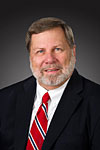Education symposium to examine how values impact controversy
The University of Houston-Victoria education school’s spring symposium will look at how teachers can discuss controversial topics with their students.
“Climate Change, Controversy and the Classroom” is the topic of the UHV School of Education, Health Professions & Human Development Spring Symposium. It will be from 6 to 7 p.m. April 26 in the UHV University West Alcorn Auditorium, 3007 N. Ben Wilson St. The event is free and open to the public.
“Sometimes teachers are responsible for teaching content that may not be popular,” said Rachel Martinez, the school’s associate dean. “As teachers and citizens in this country, we need to be able to communicate with each other about complicated issues. How can we discuss these important issues while recognizing that other people have different opinions and beliefs? If we can find ways to do that well, we will be better educators and citizens.”
The symposium will be presented by Stuart Carlton, the healthy coastal ecosystems and social science specialist with the Texas Sea Grant College program at Texas A&M University at Galveston. Although attitudes and perceptions toward climate change are his specialties, the concepts discussed during the event can apply to any controversy, he said.
Some of the major factors that contribute to ongoing controversies are personal values and perceptions, Carlton said. All people interpret facts through the lens of their values and perceptions, which means they are more likely to accept facts that line up with those values and reject information that contradicts them.
“It’s easy to assume that if people just knew the facts, there would be no controversy,” Carlton said. “But the truth is that people’s values are tied to their identities and feelings of self-worth, so facts and information are unconsciously evaluated based on those feelings. That’s why discussions about climate change and these other topics can turn nasty so quickly.”
What teachers and other educators need to understand is how to communicate with people who have different values and present information in a way that can be accepted by everyone.
In addition, educators need to take into account the age and development of the students they are teaching, Carlton said. Children and many teenagers still are developing their values. Children also are heavily influenced by their parents’ values, and teenagers often are swayed by their peers’ beliefs.
With each group, educators must focus on clear communication techniques and consider how these differing values affect the perception of individual students, Carlton said. Whether the topic is climate change, vaccinations, genetically modified organisms, nuclear power or any other subject, there will be differing viewpoints. The trick is finding a way to get past the personal biases and communicate the facts.
“Effective communication in the classroom is one of the most instrumental tasks for educators,” said Fred Litton, dean of the UHV School of Education, Health Professions & Human Development. “Dr. Carlton’s presentation will be an interesting look at how people can find ways to have meaningful conversations and overcome personal biases on controversial topics. Those conversations may be hard, but often they are the ones that most need to happen.”
For more information about the symposium, email education@uhv.edu.
The University of Houston-Victoria, located in the heart of the Coastal Bend region since 1973 in Victoria, Texas, offers courses leading to more than 80 academic programs in the schools of Arts & Sciences; Business Administration; and Education, Health Professions & Human Development. UHV provides face-to-face classes at its Victoria campus, as well as an instructional site in Katy, Texas, and online classes that students can take from anywhere. UHV supports the American Association of State Colleges and Universities Opportunities for All initiative to increase awareness about state colleges and universities and the important role they have in providing a high-quality and accessible education to an increasingly diverse student population, as well as contributing to regional and state economic development.
Lauren Hightower-Emerson
361-570-4342







